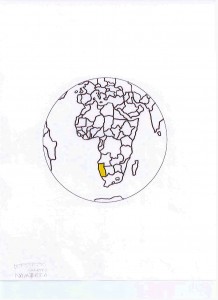NAMIBIA
A. THE COUNTRY
The Republic of Namibia, in southern Africa, is predominantly arid,
semi-desert. Most of the country’s small population live on the central
plateau and the better-watered northern border regions. Government is a
stable multiparty parliamentary democracy. Mining diamonds, uranium,
and many other minerals, cattle ranching, fishing and increasingly
tourism are important to the economy. Issues for the nation’s
leadership to address include poverty (35% are unemployed), land
ownership, and AIDS (25% of adults and young people are infected).
B. THE PEOPLE
The population is ~2,213,000 and official language English, though few
speak it. Most speak Afrikaans.
~69.84% are Bantu, ~8.9% Khoisan, ~8.5% European, ~12.8% Mixed Race.
C. RELIGIONS AND CHRISTIANITY/PENTECOSTALISM
Namibia is a secular state with freedom of religion.
~91.44% claim to be Christian, ~4.52% Ethnoreligionist, ~4%
Non-religious, ~0.04% Jewish.
In the Christian category:
~60.64% are Protestant, ~17.86% Catholic, ~11.59% Independent, ~5.2%
Anglican, ~3.3% Unaffiliated, ~0.19% are considered ‘marginal’.
Evangelicals represent ~12.2% of the population.
Charismatics represent ~6.8% and of those `2.9% are Pentecostals.
Donna Siemens
References:
http://en.wikipedia.org
Operation World, Jason Mandryk. Colorado Springs: Biblica Publishing, 2010.

